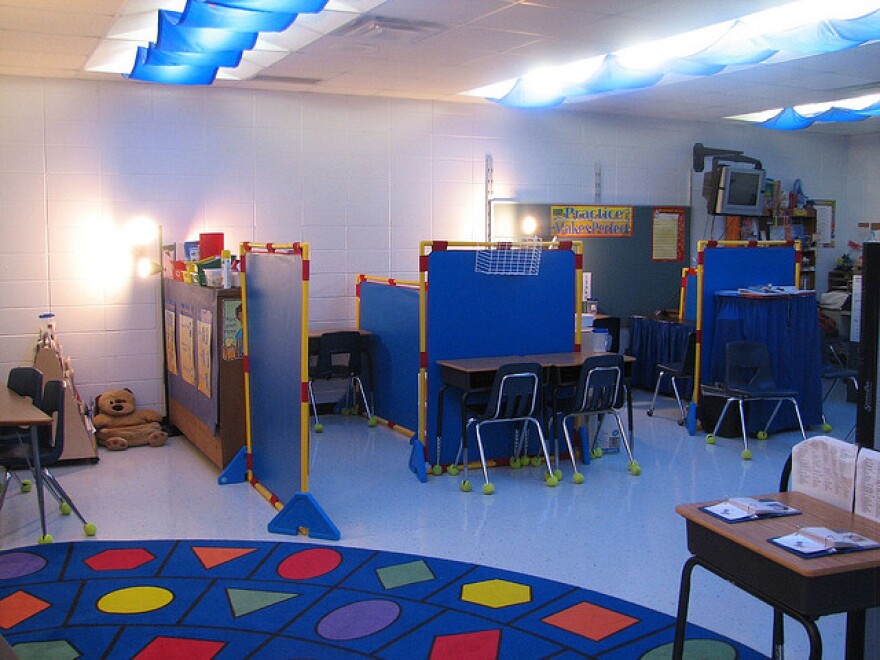The Family and Social Services Administration will announce this month the five counties selected to participate in the state’s new pre-k pilot program, Indiana’s first big move toward making preschool a priority.
But many believe a child’s learning needs to be a priority from the beginning of his life, before he ever enters a classroom.
Amiri-Jayden Smith is three months old, and today his mother, Jazmin Smith, and her nurse home visitor Maire Flood are weighing and measuring him.
Smith's smile spreads across her face.
"Right now I just got his three month paper and it tells you the stuff that he should be doing, the stuff you should be doing to help do the stuff he should be doing, and tummy time to get his head up, and his grip and stuff," she says.
But knowing what these milestones are and how to encourage them is not natural for the 20-year-old new mom.
Smith meets with nurse Marie Flood weekly to talk about Amiri. It's part of The Nurse Family Partnership which pairs Medicaid-eligible, new mothers like Smith with a nurse who helps them through pregnancy up until their child turns two. They talk about everything from what to expect during labor to breastfeeding.
Research backs up this practice of early education. A 2012 study from the Center for Early Literacy Learning looked at two groups of toddlers – those who were read to and those who weren’t. The children who were read to developed their language skills earlier than those who were not.
"And we’re so happy that Indiana is doing more with preschool, but readiness for preschool starts way back in the cradle," says Angela Tomlin, who directs Riley’s Child Development Center in Indianapolis.
"You know, people think the baby is born and everything is kind of ready to go but really when babies are born their brains are what we call experience expectant and we have certain things that need to happen in order for the babies brain to completely finish up development," Tomlin says.
Tomlin says not only should parents focus on the education aspect of their child’s development, but also their relationship with the child.
Amiri-Jayden is sleeping on his mom’s chest while she looks over another worksheet from Flood. Today they’re going through a list of behaviors Amiri-Jayden does when he’s either engaged or disengaged. This helps Smith recognize when her baby is alert and able to play, eat or read with her.
The parenting skills Smith is learning are different from the way she was raised. She says her parents views on breastfeeding, enrichment and other developmental activities aren’t in line with what she’s learning.
"If I never called Marie, I would probably be listening to my mom and their way of doing things," she says. "He would probably be eating table food, he would probably be doing a lot of things he shouldn’t be doing. I wouldn’t be reading to him, no tummy time cause I didn’t know about all that stuff."
Through the program, Smith is gaining confidence as a mother. When asked to imagine Amiri-Jayden starting school one day she says she’s excited, because she knows he’s going to be one of the smartest kids in the class.



